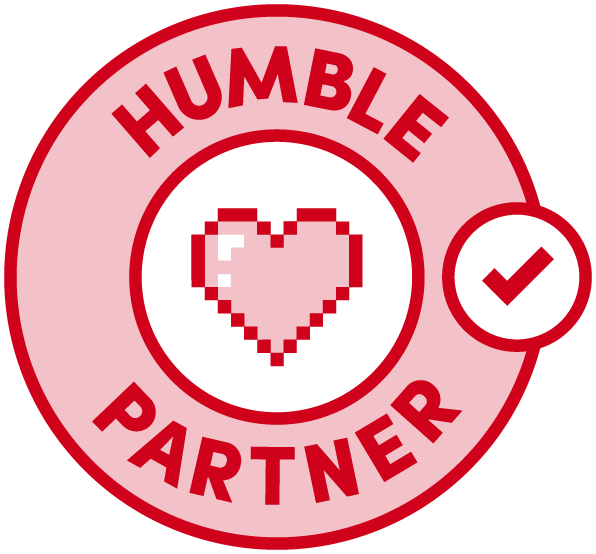Epic vs. Steam: Explaining The PC Digital Storefront Dilemma For Indie Games
PC digital marketplaces have been a contentious topic recently. Steam’s years-long dominance has been disrupted, slightly but distinctly, by aggressive moves from the Epic Games Store. While it’s easy to find players voicing their discontent with the Steam status quo or Epic exclusivity, how exactly we arrived here–and what it means for the game development community–often goes overlooked.
While Steam is the current market leader for PC digital distribution, in the early 2000s its market dominance was anything but certain. It launched in September 2003 to a relatively anemic digital PC market. Publishers had experimented with selling their wares direct to customers, but there was no one-stop shop that brought together multiple publishers. If game studios were door-to-door salesmen, Steam was the mall.
This approach wasn’t entirely novel, of course. Chains like GameStop had built businesses around selling video games. But many big box retailers and brick-and-mortar specialty stores were slow to note the advent of faster Internet connection speeds, especially among the higher-tech crowd that plays PC games. Valve entered this fledgeling market early, and has had time to establish itself as the leader.
In the years since, other digital distribution platforms have entered the market. Microsoft has made multiple attempts to distribute PC games with initiatives like Games For Windows Live, but Steam has remained the market leader. Over time, PC game digital distribution entered something approaching stability, with Steam acting as the default platform accompanied by a handful of publisher-led storefronts and smaller boutique distributors like GOG. None posed a real challenge to Steam’s dominance.
Recently, though, Steam has had to contend with real competition in the PC space, thanks to a new entrant in the market. At first, the Epic Games Store appeared to be another publisher storefront akin to EA’s Origin or Ubisoft’s Uplay, but Epic clearly had bigger plans in mind. It quickly began locking down exclusivity arrangements with developers. Some of these arrangements were controversial, especially when games previously announced or even already available for preorder on Steam were pulled. This was the case with one early example, Metro: Exodus, which honored existing preorders but stopped taking new ones.
The Epic Games Store has posed itself as a more developer-friendly solution in comparison to Steam, but it’s the exclusivity arrangements that have garnered backlash from some in the gaming community. Epic has deep pockets, thanks in large part to the runaway success of Fortnite, and it appears to be using some of those funds to buy market share–at least, that’s what the perception can be. Complaints about the Epic Store range from a lack of convenience–having to run a separate launcher or keep a separate friends list–and broken promises of Steam support, to a lack of features on Epic’s burgeoning store.
Epic Games’ Tim Sweeney has been especially outspoken regarding his company’s store initiative, often vocally criticizing Steam’s revenue split with developers (70/30) while promoting Epic’s own (88/12). He’s also addressed consumers who raise concerns directly to him. Despite the company’s size, Epic is still something of an underdog in the storefront battle. Steam remains the dominant marketplace but, by pitting itself against the market leader, Epic Games is declaring itself a real competitor.
In comments to GameSpot, Sweeney said that the Epic Games Store is profitable with its modest revenue split. He also said that the 88/12 split is the figure given to all developers and publishers of any size, and “there have never been any exceptions.” That said, he’s open about the fact that Epic’s other long-term projects are providing a base of funding for developer partnerships.
“The funding Epic is providing for developers is a long-term investment in their and our future,” he said. “Epic’s funding commitments far exceed the store’s current 5% profits, and is made possible by the financial success of Unreal Engine and Fortnite.” He said these partnerships provide financial support for development and marketing, “which enables them to take their time to build more polished games with significantly less uncertainty.”
Sweeney’s outspoken nature has made him a lightning rod for the divisive issue of store exclusivity. His Twitter account is rife with ongoing discussions as users argue with him about everything from exclusivity to revenue splits. And he’s been quick to pose the company’s moves as altruistic, even suggesting that it would stop pursuing exclusivity arrangements if Steam adopted Epic’s revenue split.
If Steam committed to a permanent 88% revenue share for all developers and publishers without major strings attached, Epic would hastily organize a retreat from exclusives (while honoring our partner commitments) and consider putting our own games on Steam.
— Tim Sweeney (@TimSweeneyEpic) April 25, 2019
“Ultimately, this is about making the industry a better place, starting with the terms available for developers,” Sweeney told GI.biz in March. “I understand gamers don’t see that. They don’t see the hardship of making a payroll and seeing the store suck out 30% of the revenue from it. It can be jarring to see the industry is changing in ways that are typically invisible to us as gamers.”
The nature of these warring stores has led to backlash, and indie developers in particular are caught in the middle. Epic’s offer is attractive, offering both a better revenue split and a safety net for partners. And while Epic’s criticism of Steam’s revenue model is likely driven at least partly by competition, developers themselves who have ultimately gone to the Epic Games Store often share Epic’s own central question: why is the revenue split on Steam so high?
“I buy a lot of games on Steam, but I didn’t really know how the business of it worked,” said Airborne Kingdom producer Zach Mumbach, “So I started looking into it. How do you get a game on Steam? How do we get funded? And what I found was, the whole thing was kind of disheartening.”
Mumbach had come from a triple-A studio, working at EA before starting an indie company, The Wandering Band. The tiny company had an idea for a game, but the revenue split caught Mumbach off-guard.
“Okay, so [Valve is] going to take 30% of the revenue. And right away I felt, ‘Whoa, that’s high.’ This is coming from AAA, that’s what a Target or Walmart or GameStop takes from big AAA [publishers]. They take 30% to put their games in stores. That’s physical store space. They have to put lights on, they have to pay employees. I guess my assumption was, well digital obviously it’s going to be cheaper. Why would the storefronts take a full 30%?”
The studio had been self-funding its project, but it was going to need a publisher arrangement to keep going, and proposed contracts were equally difficult to swallow. Mumbach found that publishers may be willing to front the cost of development, but would then require the investment to be recouped in full, and then the publisher could receive as much as 50% of the remaining revenue after that point. That means, for example, a $1 million funding arrangement would need to make $1.4 million in total before The Wandering Band would see a dime.
“Depending on the publishing deal you get, you’re getting less than half of the money that your game is making,” Mumbach said. “So I was super bummed. I talked to a whole bunch of publishers and I tried to leverage different offers against each other to try to get these numbers down. That’s when Epic came into the picture. They’re going to get their money back, but not in a way that cuts us off from revenue for who-knows-how-long.”
Mumbach noted that for his game, this makes Epic’s funding a part of the development process. He’s been able to bring on an extra engineer, and the game isn’t yet complete. He concedes that this makes his experience different than a game like Borderlands 3 or Metro Exodus–which were nearly complete by the time their respective Epic Store exclusivity was announced. But he maintains that it was the right move, not only for how it helped his fledgling studio, but how it prevented him from taking big financial risks that could impact the game’s quality.
“Before we signed with them, I was seriously considering ditching the whole publisher route,” he said. “You can imagine if I had a loan for that much money over my head right now, I’d be stressed out and I’d be making decisions about getting this game out faster. ‘We’ve got to get this game out, I’ve got to get my money back, I’ve got to be able to pay off this loan!’ We can take as much time as we need and we have extra funding.”
William Chyr, developer of Manifold Garden, recounted a similar experience.
“At the end of the day the money allows us to keep the studio going,” Chyr said. “It allows us to pay back the investors. It allows us to recoup development costs, keep the lights on, and then we can keep supporting the game. We’ve been able to scale up and get QA and get a lot more help.”
While the move makes sense for developers, high-profile incidents have made many studios wary of how to approach the topic with their prospective fans. Responses ranging from review-bombing to outright harassment and threats have been commonplace. Perhaps the most high-profile of these was directed towards the creators of Ooblets, a small indie game that broke the news with a tongue-in-cheek tone that some gamers took as insulting. The response was fierce and hateful.
I know this is a hot-button issue for some folks but getting some funding is going to make a huge difference for Ooblets.
We’re chatting with folks in the community via email and on discord if you have questions and concerns
— Ooblets (@ooblets) August 1, 2019
“I mistakenly thought I could have some impact on their opinions and emotions and defuse the situation with some lighthearted criticism of the main things that drove them to attack people,” developer Ben Wasser said. “You can see how well that went. It was a stupid miscalculation on my part.”
Even Valve employees have found themselves needing to couch their words carefully to avoid legitimizing abusive responses. After Metro Exodus announced it would be a timed Epic exclusive, Valve issued a statement that referred to the move as “unfair” to customers. A subsequent backlash against individual Exodus developers and even Metro series author Dmitry Glukhovsky made the company consider how its statement may have inflamed tensions.
“I don’t think that was our intent to upset people,” Steam business developer Nathaniel Blue told Kotaku. “It wasn’t the intent of the message. It was more about the timing. The game was about to launch, and then it was [exclusive to the Epic store]. So that was the only goal of that. What came out of that was not what we expected. It wasn’t meant to be this lightning rod.”
Blue added that the company has decided to remain quiet on these arrangements from that point on, so as to avoid upsetting the community.
As for indie developers, they’re faced with the prospect of making the announcement alone. Epic pledged its support for developers against harassment, but has not outlined concrete steps it is taking to protect developers from backlash. Sweeney draws a sharp distinction between critics and harassers, and suggests that engaging the latter group in good faith is the best approach.
“There are two distinct things happening,” he said. “There are critics sharing their views while engaging in debate, and then there is a smaller set of trolls engaging in harassment, threats, and fabrication. Critics and abusers are distinct sets of people and shouldn’t be conflated.
“Harassers have always existed, but have now gained a vast reach because social media companies algorithmically curate by engagement, and negative engagement is stronger than positive. With critics, we should always engage in discussion with the hope that eventually we’ll arrive at a common view of what the store landscape should look like. This is a healthy debate that is shaping the future of the industry.”
For studios, that strategy has propagated naturally, with some watching and learning from other studios and settling on a relatively safe method: make the announcement in a straightforward manner, free from jokes or opinionated commentary. Then engage as necessary, but politely.
“When we announced it, it was pretty straightforward,” Chyr said. “‘We’re doing this, let us know your concerns, this is why we’re doing it.’ We got some backlash but it’s like 5%.”
Chyr pointed out that engaging with the community one-on-one was a crucial aspect step for him to help dispel any bad blood. He made a point to speak with people who were concerned on a personal level, which made a real difference.
“Most of the discussions were positive,” he said. “I have a mailing list with like 4,000 people and I would say maybe 10 people emailed me back disappointed. But I emailed each of them back and asked to talk and I explained the decision. Most of them, actually, came around and said they understood. A lot of them apologized. I think they didn’t expect me to be on the receiving end of that email.”
Mumbach took a similar approach with a detailed post explaining the decision to the community, but also said that some people will just never be convinced.
“Most people were like, ‘this sucks, Epic’s evil.’ But the conversation happened,” he said. “And some people ended on, ‘You know what, best of luck but I’m not going to support Epic.’ Cool, you can do what you want. I don’t have any problem with that. And certainly some people were like, ‘Oh wow, thank you. I understand this a lot better. I’m going to buy games on Epic’s store because I want to support developers,’ and that’s really cool when people say that.”
On the whole, the fight over digital storefronts and backlash against developers who make exclusivity arrangements is happening on a much larger stage, against two of the most profitable and powerful companies in the video game industry. Developers, and especially small indie developers, are only able to do what they can to navigate a contentious topic they have little control over.
“At the end of the day I’m not the person making the store,” Chyr said. “I’m just a developer. As an indie guy, I’ve got my little raft out on the ocean, but I’m not the one making the waves or deciding the current. We’re just trying to not sink.”
from GameSpot – Game News https://www.gamespot.com/articles/epic-vs-steam-explaining-the-pc-digital-storefront/1100-6471219/



Leave a Reply
Want to join the discussion?Feel free to contribute!